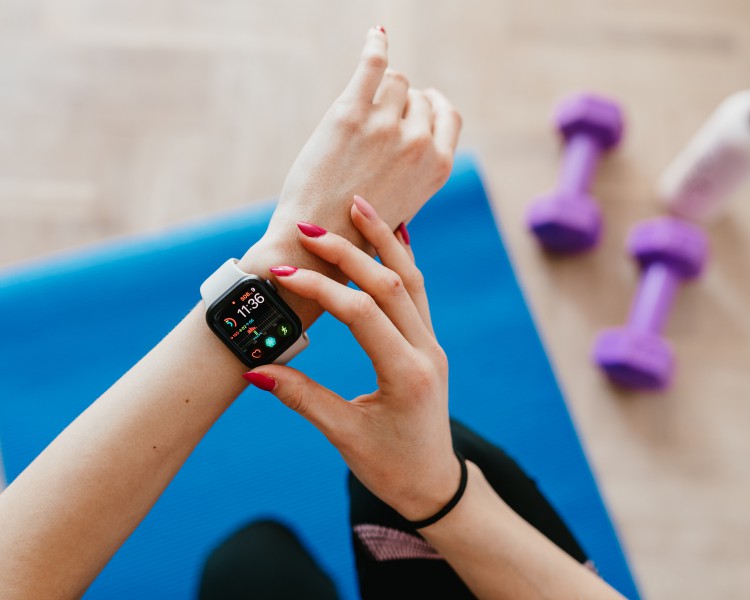
What Will The Digital Healthcare Industry Look Like By 2030?
Technology has caused a vast change to almost every facet of life in the modern day, and this also applies to the healthcare industry. It has always created new openings for cures and prevention, but how is technology going to impact the digital healthcare industry in the foreseeable future? Here we look into the future of healthcare & the constantly evolving technology being used in meet patients needs.
Recently, Chits UK welcomed students from the Haberdashers’ Aske’s Boys’ School to join us on a short work experience placement. As part of the programme, the students engaged in SEO optimised blog writing to build on their knowledge around the sector of Healthcare Marketing. In the blog below, Neel Maden explores the changes we may see in the digital healthcare industry over the next decade.
1. Human Professionals Remain Key
It must be noted that human professionals in medicine shall certainly remain pivotal to the healthcare industry in the foreseeable future. Robots and automation will eventually become central in healthcare, but even amidst this, human professionals will remain fundamental in delivering personalised treatments with customer-centric approaches to patients who would prefer human interaction. However, advances in technology over the next 10 years, will require healthcare professionals to develop new skills in which they harness the latest technology/AI and move to an increasingly digital healthcare world.
2. Healthcare Apps
Over the next 10 years, the healthcare industry will increasingly move to online apps to improve patient experience & reduce waiting times to see healthcare professionals. For example, Health Europa states that by 2024, the whole of the UK “will be able to access maternity records digitally”. A digital app version of the ‘red book’ (a child’s personal NHS health record) will enable parents to digitally record various details about their child. This means that PHR (Personal Health Records) can start from birth and later be built on throughout a patient’s life. It is likely that a range of other healthcare services will follow a similar trend, GP appointments could be booked via apps with video consultations taken directly from the platform. Those that will drive the healthcare digital revolution are those that begin investing in applications to drive efficiencies in their healthcare service.
3. Specialist Digital Healthcare
In the next 2-3 years, specialist healthcare will be greatly enhanced by technological advances. Healthcare professionals will be able to easily access referral templates and specialist guidance from GPs, reducing the amount of patients needing an in-person appointment. Online photos and questionnaires will also be in use to enable many entirely virtual appointments & obtain patient information upfront. As we have seen with COVID-19, life goes on despite social distancing measures, and so too does the healthcare industry. As the industry moves digital, so too will its data which will drive research and development in the coming years. For example, we are already seeing image networks develop where patient images drive an algorithm that matches potential health issues with online specialists. Not only does this ensure the patient receives the right specialist, it also build a data bank linking images, symptoms, treatments & healthcare specialists.
4. Personalised Digital Healthcare Plans
By 2025, digital healthcare and nutrition plans shall become far more specific to each individual. As we are already seeing, wearable health monitors enable live data collection for patients – in the future we expect this to advance from basic data gathering (e.g. heart rate, steps) to more sophisticated measurements (e.g. gut bacteria levels). In such cases, analysis of a patients live data can allow healthcare providers to tailor subsequent treatments to best suit an individual’s metabolism and DNA. Blood samples taken at birth will also be used to identify and analyse which health issues a patients DNA makes them at all vulnerable to. Around the end of this decade, such information will be collected using advanced data-capturing & analysis tools, almost eliminating administrative costs and simply empowering the clinicians to personalise treatments to specific patient needs.
5. Digital-First Strategies
Although human professionals will still be a key facet of digital healthcare in the vastly-changed system we are bound to see by 2030, the approaches used in treating patients is likely to be ‘digital-first’. By the end of the decade, AI will be used regularly in helping clinicians apply best practice and support patients. When unwell, people will be cared for in their own homes much more often, with wearable data collection devices being a viable option for effortless monitoring of their physiology. The Medical Futurist states that the algorithms likely to be used “will (eventually) mine medical records, design treatment plans and create drugs way faster” than any healthcare professional can. In 10 years’ time, the NHS may move to offer a digital-first option, enabling longer and richer face-to-face consultations where it is wanted or needed. By 2035, optimal virtual consultations with a doctor via video call will be fully enabled.
6. Dealing with Coronavirus – NHS
Of course, healthcare has already undergone a sudden, previously unexpected shift in its system due to the COVID-19 pandemic. The Institute for Fiscal Studies states that the NHS is undergoing an ongoing effort “to dramatically increase the resources available to hospitals in treating these patients, involving reorganisation of hospital facilities, redeployment of existing staff and a drive to bring in recently retired and newly graduated staff” to fight the pandemic. In the next year or so, people will on a more regular basis have access to their communications and care plans from professionals via the NHS app, helping more and more people manage their health needs themselves or in other cases directing them to the appropriate service. Several technologies will also be used to deliver digitally-enabled models of therapy for depression and anxiety disorders to people.
7. Dealing with Coronavirus – Private Practices
Similarly, private practices have had to deal with the spread of COVID-19 through a vast (although partially temporary in some cases) change in systems. Such vast and rapid changes have called for advanced technologies in the digital healthcare world. For example, at Chits UK, a new system called BookEasy has been developed for healthcare professionals. This is an automated online reservation system, which allows patients to simply enter their details and book appointments directly through a clinic or private consultant’s website. This ensures patients in need of virtual appointments or assessments can conveniently and easily register their details and book themselves in, primarily for virtual appointments, in a hassle-free and rapid manner.
Conclusion
To conclude, while the greater implementation of technology has been fast-tracked and, for the time being, partially adapted due to the COVID-19 pandemic, a transformation of sorts in the healthcare industry is set to take place from now until 2030. The advancements in technology will essentially re-structure healthcare, while human medical professionals will stay essential to the system, but will have to learn a range of new skills amidst these advancements and take up different roles in time. The next decade should see a great rise in the efficiency of the healthcare industry.

As an Eye Care Practitioner and just about to start ‘Telehealth practice’ , I find this article very encouraging and helpful.